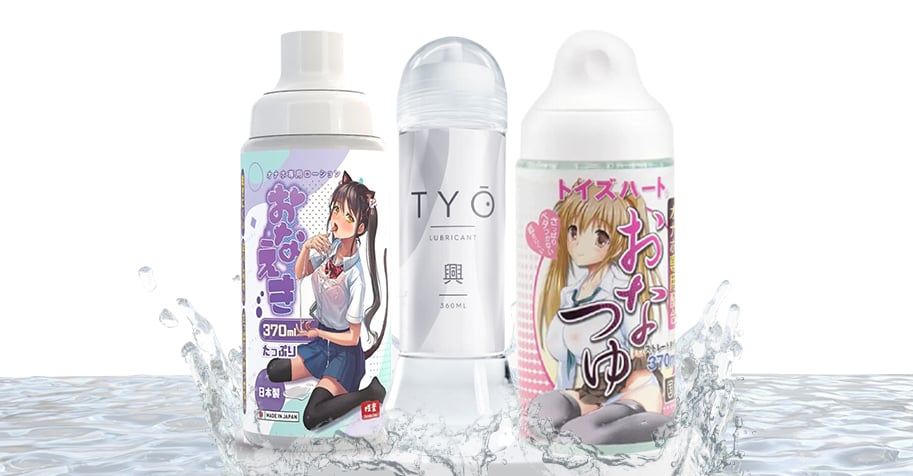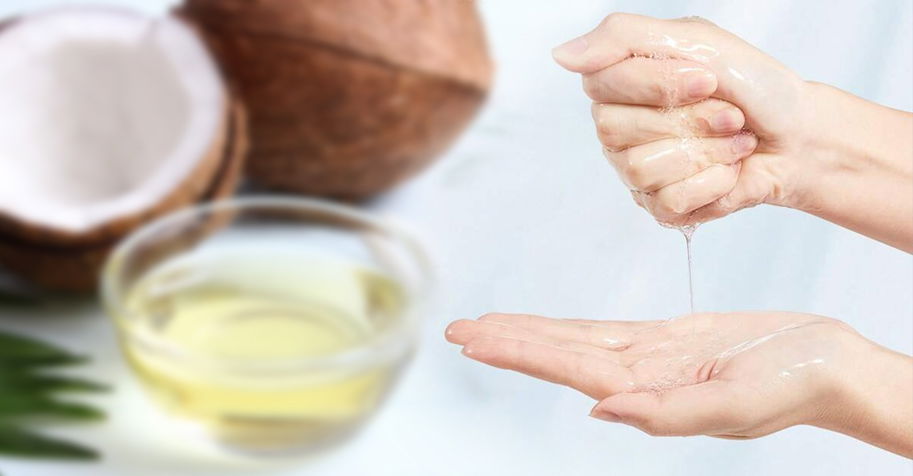In the never-ending quest for the perfect lube, it seems we've looked everywhere but the kitchen. Yet, here we are, eyeing coconut oil—not for sautéing but for sliding.
It's the natural, unrefined answer to our slick desires, and it's time we talk about it seriously (with a side of cheekiness, of course).
The world of personal lubricants is vast, from the high-tech, silicone-based formulas to the classic, water-soluble options.
But as we've become more health and environmentally conscious, the appeal of a natural, body-friendly lubricant has grown.
This is where coconut oil, with its smooth texture and pleasant scent, slides into the spotlight. Could this grocery shelf regular really be the eco-sexy alternative we've been looking for?
Let's cut through the grease and find out if coconut oil is the bedroom buddy you never knew you needed.
Understanding pH Balance and Lubricants

Navigating the world of personal lubricants isn't just about finding the slipperiest option— it's also about keeping the peace in your intimate regions. The pH balance down there is like a delicate ecosystem, and throwing it off can lead to a host of unwelcome issues.
The Importance of pH Balance
The genital area's pH balance is a finely tuned scale that leans towards the acidic side, helping to fend off harmful bacteria.
Disrupt this balance, and you're looking at irritation, discomfort, or even infections. It's like a party where the wrong guests turn up and start causing trouble.
Water-Based Lubricants and pH Balance
Water-based lubricants are often praised for their compatibility with the body's natural pH. They're like the polite guests who mingle well, ensuring the party (a.k.a. your intimate moments) goes smoothly without upsetting anyone.
These lubes are designed to play nice with your body's chemistry, supporting the natural balance rather than overthrowing it.
Natural vs. Synthetic Lubricants
Then there's the face-off between natural and synthetic lubricants. Synthetic lubes can offer unparallelled smoothness but sometimes at the cost of your pH balance's harmony.
They might not always consider the natural ecosystem down there, leading to potential gate-crashers.
Natural lubricants, like coconut oil, on the other hand, often boast a composition that's more in tune with your body's natural state.
They're the guests who bring a dish to the party that everyone can enjoy—kind, considerate, and less likely to stir up trouble.
So, when it comes to choosing your lubricant, think about not just the immediate pleasure but also the long-term health and happiness of your most intimate areas.
It's about keeping the party going smoothly, without any unexpected fallout.
Benefits of Using Coconut Oil as a Lubricant
When it comes to getting down and dirty, the type of lube you choose can make or break your experience. So, why oil, and more specifically, why coconut oil?
It's not just for popping popcorn or achieving that beachy hair look anymore.
Oil as Lube
The idea of using oil as a lubricant isn't new. After all, oil has been keeping things smooth and operational, from ancient chariots to modern machinery, and yes, even in the bedroom.
But not all oils are created equal. While some can turn your sheets into a slip 'n slide, others can be a one-way ticket to Yeast Infection City.
Enter coconut oil, the Goldilocks of oils, offering just the right combination of natural slipperiness and body-friendliness.
Nutritional Benefits
Unrefined coconut oil is like the Swiss Army knife of the pantry. Packed with medium-chain fatty acids, it's got antimicrobial properties that keep things clean and healthy.
But when it comes to personal use, its nutritional profile means it's kind to your skin and sensitive areas, providing moisture and care where it matters most.
Virgin Coconut Oil as a Natural Lubricant
Virgin coconut oil is the real MVP here. It's the least processed form, retaining all the natural goodness that makes it an excellent lube.
Its thick, creamy texture melts on contact with the skin, providing a long-lasting slip that's perfect for intimate moments.
Plus, its natural antibacterial and antifungal properties are a bonus, helping to maintain the delicate balance of your nether regions.
So, if you're looking to slide into something more natural, virgin coconut oil might just be the slick pick you've been searching for.
Comparing Oil-Based Lubricants

When it comes to personal lubricants, the oil vs. water debate is like choosing between a buttery croissant and a refreshing glass of water—both delicious but serving different moods and moments.
Let's dive into what sets these slick contenders apart and why choosing the right one matters for more than just your sheets.
Oil-Based vs. Water Based Lubricants
Oil-based lubricants are the long-distance runners of the lube world, providing a lasting slip that water-based lubes can't always match.
Imagine them as the marathoners, built for endurance rather than a quick sprint.
Water-based lubes, meanwhile, are the sprinters—great for a quick dash, easy to clean up, and compatible with pretty much everything from condoms to your favourite toys.
The Latex Condom Conundrum
Here's where the plot thickens—literally. Oil based lubes and llatex condoms are like oil and water; they don't mix.
Oil can degrade latex, turning your protective barrier into Swiss cheese when you least expect it. If you're relying on latex for protection, oil based lubes are the uninvited guests that could crash your safe-sex party.
Hydration Heroics
On the flip side, oil-based lube options are like a spa day for your skin. They not only reduce friction but also leave your most delicate areas feeling moisturised and pampered.
If your intimate moments were a skincare routine, oil-based lubes would be the hydrating serum that keeps everything smooth and supple.
In the end, choosing between oil-based and water-based lubricants comes down to understanding your needs, preferences, and safety considerations.
It's about matching the right type of lube to the right occasion, ensuring every intimate encounter is as pleasurable as it is safe.
Addressing Concerns: Coconut Oil and Health
Before you start eyeing that jar of coconut oil with bedroom eyes, let's address the coconut in the room—the potential risks and considerations of bringing it into your intimate life.
Potential Risks of Using Coconut Oil as Lubricant
While coconut oil has its fans in the lube arena, it's not without its cautionary tales. For some, it can be the natural slide into bliss; for others, a slippery slope to irritation.
Everyone's body reacts differently, and what's a moisturising marvel for one might be an allergenic antagonist for another. It's like choosing a dance partner—chemistry matters.
Coconut Oil and Latex Condoms
Here's where things get a bit sticky—literally. Coconut oil and latex condoms are not a match made in heaven. Oil can compromise the integrity of latex, leading to breakages.
Imagine a superhero’s cape tearing at the worst possible moment. If latex is your barrier of choice, coconut oil might not be your sidekick in the sack.
Silicone-Based vs. Oil-Based Lubricants
When it comes to the showdown between silicone based and oil-based lubes, it's a tale of longevity versus natural appeal.
Silicone based lubricants are like the marathon runners of the lube world—long-lasting and resilient, even in the wettest conditions.
Oil based lubricants, like our beloved coconut oil, offer a more natural, skin-friendly option, but with the caveat of not playing well with all materials, especially latex.
So, as you weigh the pros and cons of introducing coconut oil to your intimate encounters, remember—it's all about personal preference, safety, and compatibility.
Just like in any good relationship, communication (with your body and your partner's) is key.
Safely Using Coconut Oil as Lube

So, you're considering bringing coconut oil into your intimate moments. Great choice! But let's make sure you're doing it safely, keeping both pleasure and health in mind.
Tips for Safely Using Coconut Oil as a Lubricant
Patch Test: Before going full coconut, do a patch test on a less...intimate area of your skin. This way, you'll know if you're allergic without turning your private parts into a laboratory experiment.
Quality Matters: Opt for unrefined, virgin coconut oil. It's less processed, meaning it retains its natural goodness and is less likely to irritate.
Keep it Clean: Make sure your coconut oil is stored in a clean, easy-to-access container. You don't want to introduce any unwanted bacteria into the mix.
Preventing Yeast Infections with Coconut Oil
While coconut oil has antifungal properties, the key to preventing yeast infections is balance. Here’s how:
Moderation is Key: Don't overdo it. A little goes a long way, and too much can disrupt your natural flora.
Stay Dry: Make sure you're dry down there before dressing. Bacteria and fungi love warm, moist environments, so don't give them a home.
Benefits of Using Natural Lubricants for Sexual Health
Using natural lubricants like coconut oil can be a game-changer for your sexual health.
They’re free from harsh chemicals and additives found in some synthetic lubes, which can irritate sensitive skin and disrupt your pH balance.
Plus, the moisturising properties of natural oils can leave your skin feeling soft and nourished, rather than sticky or dry.
The Bottom Line
As we wrap up our coconut oil escapade, let's take a moment to look back at the slippery slope we've navigated together.
Coconut oil, with its natural charm and moisturising prowess, has certainly made a case for itself as a bedroom buddy. However, like any good relationship, it comes with its nuances and conditions.
And while you're exploring the realms of natural lubes, why not enhance the experience with some top-tier Japanese sex toys?
Motsutoys offers a curated selection of the finest imports, designed to complement your adventurous spirit in the bedroom.
Whether you're team silicone, water-based, or oil-based, we've got the perfect partners-in-pleasure to pair with your lubricant of choice!
Stay safe, have fun, and let your pleasure be your guide. Happy exploring!








